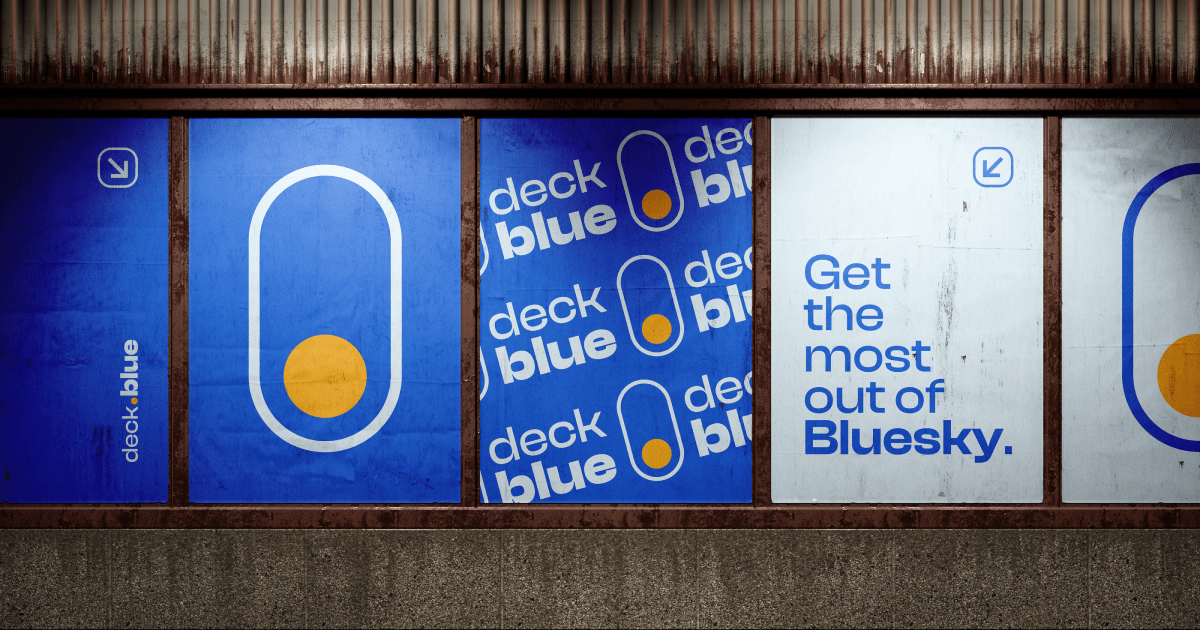With over 3 million users and plans to open up more broadly in the months ahead, Bluesky is still establishing itself as an alternative to Twitter/X. However, that hasn’t stopped the developer community from embracing the project and building tools to meet the needs of those fleeing the now Elon Musk–owned social network, formerly known […]
© 2024 TechCrunch. All rights reserved. For personal use only.
With over 3 million users and plans to open up more broadly in the months ahead, Bluesky is still establishing itself as an alternative to Twitter/X. However, that hasn’t stopped the developer community from embracing the project and building tools to meet the needs of those fleeing the now Elon Musk–owned social network, formerly known as Twitter. One such project is deck.blue, a Bluesky-flavored version of Twitter’s beloved (though often ignored) TweetDeck — the latter of which became a paid service last year and has been rebranded as X Pro.
With deck.blue, Bluesky users can view posts on the social network in the column-based format popularized by TweetDeck, including things like their home timeline, notifications, likes, lists, or even custom feeds. They can also take advantage of features like support for multiple accounts and scheduling of posts.
The deck.blue app, which is currently available on the web, was built by 25-year-old Gildásio Filho, a São Paulo, Brazil–based software engineer who, by day, works on the music collaboration app Indaband. He’s teamed up with Japanese developer Shinya Kato, who handles more of the back-end infrastructure and works with the API.
Filho explains that the idea for deck.blue came about last year when he got locked out of TweetDeck after X began charging for the service.
“I made a promise to myself that if I ever got kicked out, I would build my own,” he says, referring to TweetDeck.
Surveying the landscape of Twitter alternatives, Filho found that Mastodon already had a TweetDeck-inspired web interface that was first-party built and “actually pretty good,” he says. But when he examined the options available to Bluesky users, he was dissatisfied with the experiences that had been built so far. None mirrored the TweetDeck experience he was used to from Twitter.
“And, for me to start using Bluesky, I would need a TweetDeck. I can’t use it without it, it just doesn’t work,” Filho admits, echoing the complaints from many former Twitter power users when trying to switch to new platforms.
Image Credits: deck.blue screenshot
The deck.blue project began last August and within a month of writing the first line of code, it launched. Initially, the app was called Bluesky Deck, but Bluesky suggested that using Bluesky in the app’s name wasn’t the right move. So Filho renamed the app deck.blue and hired a designer to work on the branding.
Since its launch, deck.blue has been quick to tack on new features as soon as (or even before) Bluesky makes them available to the wider community. That was the case with the launch of hashtags, support for lists, and the launch of the app’s scheduling feature, for example. Notably, deck.blue was among the first third-party apps to add support for hashtags, which led to a post about the feature going viral on Bluesky with 1,500 likes and hundreds of reposts. (Bluesky’s definition of viral is much smaller due to its limited audience, of course.)
While there are other apps that offer scheduling for Bluesky, Threads, X and other social networks, like fedica and Postpone, deck.blue is aiming more at a power user audience, not social media managers who need the analytics and reporting competitors offer. To date, that’s attracted the project 15,000 registered users, around 1,000 of which are active daily.
Now that deck.blue is more fully developed, Filho is looking to generate a bit of extra income to support the project after having added multi-account support, online sync, and Patreon integration a few months ago. On Patreon, loyal users can support the app at rates of anywhere from $2 to $7 per month — prices that undercut TweetDeck, which now requires an X Premium or Premium+ subscription ($8 per month and up).
Though Bluesky’s user base is dramatically smaller than X’s, Filho is betting on a future where it flourishes.
“When they actually launch and remove the invite codes . . . I’m afraid of how big it could get,” he says. “I think Bluesky is losing users by not having invite codes [available]. So once they ditch that, I’m not sure I’ll be able to keep doing customer support on my own,” he adds.

Leave a Reply